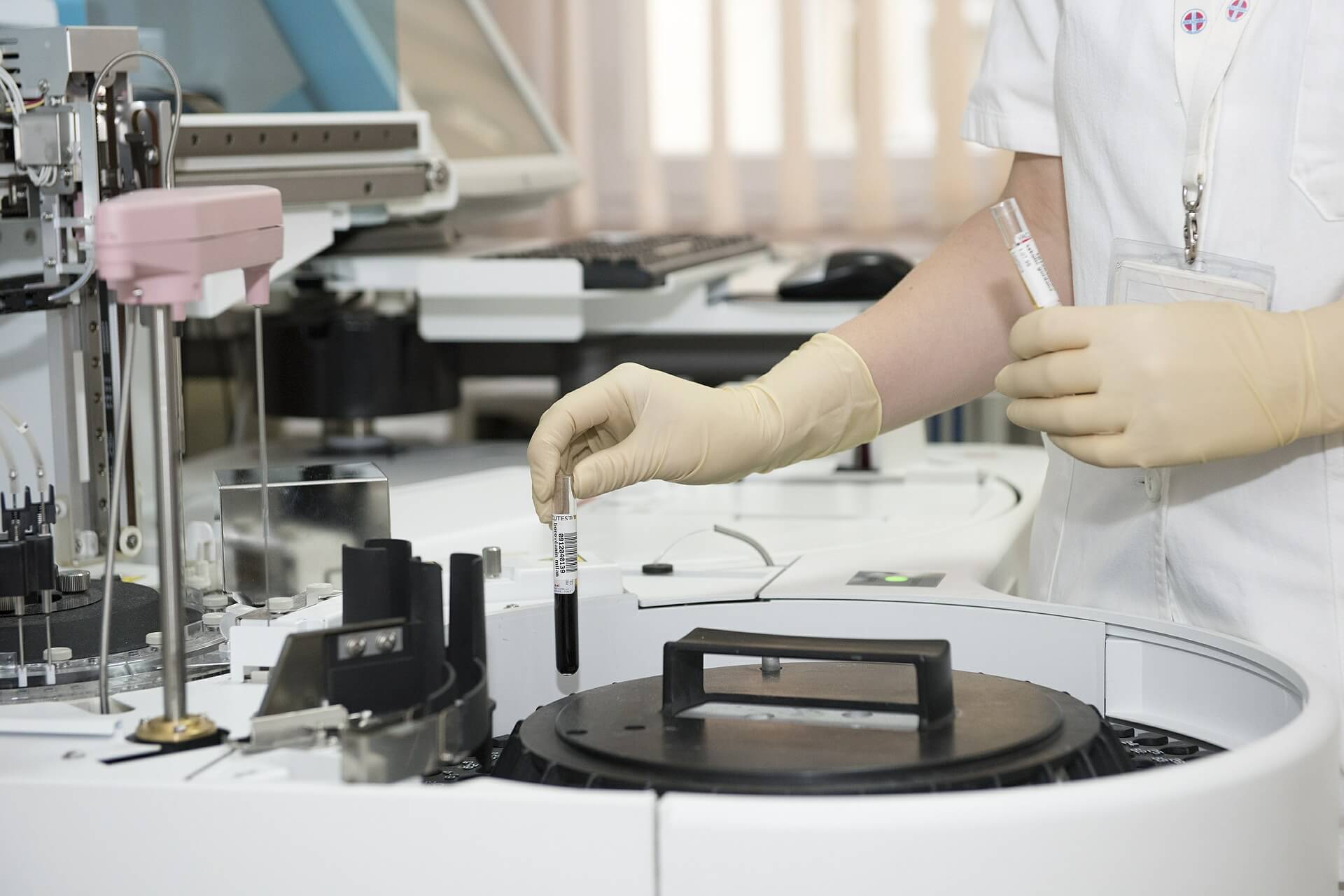13 Must-Know Men’s Health Tips
 It’s essential to pay attention to your health. Life is busy, but that should never be an excuse for not prioritizing your wellness. Staying in tune with your well-being promotes a stable lifestyle, reduces risk factors and lowers the chances of medical emergencies.
It’s essential to pay attention to your health. Life is busy, but that should never be an excuse for not prioritizing your wellness. Staying in tune with your well-being promotes a stable lifestyle, reduces risk factors and lowers the chances of medical emergencies.
Men of all ages can benefit from the following tips.
1. Search for a Doctor
For many men, an unhealthy lifestyle derives from the lack of regularly seeing a doctor or health care provider. Finding a doctor is an easy task thanks to resources available online. With a quick search, you can find health care professionals in your area who are accepting new patients.
You want to find and establish trust with your doctor. These health professionals let you know of areas of improvement in your everyday life and catch warning signs of health concerns that could harm you.
2. Visit Your Doctor Regularly
Whether you just found your doctor or already have one, visit them regularly. Getting an annual physical examination is the best way to prevent an illness before it occurs. Stop canceling or postponing your doctor’s appointments.
Things to ask your doctor about include:
- Blood tests
- Supplements
- Blood pressure
- Cholesterol levels
- Alcohol consumption
- Weight management
- Food choices
Always remember your health is a top priority, and visiting your doctor is a great preventive measure for men’s health
3. Learn From Your Doctor and Make a Change
Your doctor is the key to a healthier life. Over time, these professionals know your lifestyle as well as you do. Listen to what your doctor has to say during routine visits, and be sure to make any necessary changes if applicable.
Make it your goal to use doctor visits to get informed about health topics. Also, learn to discuss symptoms with your doctor rather than ignoring them. A proper diagnosis can promote a healthier life even with a health condition.
4. Monitor Your Diet
The foods you eat directly fuel your body. Cutting back on junk foods, sugars and carbohydrates makes a difference when you replace them with fruits and vegetables.
The best way to keep a healthy diet is to give yourself some variety daily. Eating fruits, vegetables, whole grains and fiber helps you avoid heart disease, diabetes and cancer. A healthy diet can reduce high blood pressure and belly fat.
5. Make Time for Exercise
Getting activity in your day prolongs your overall well-being. Making time for 30 minutes of physical activity during most days of the week increases men’s physical and mental health. Something as simple as an evening walk could be the lifestyle change you need.
Monitoring your progress is exciting and encouraging. There is nothing wrong with starting slow and gradually increasing your workout time and intensity as you improve. Strength training is also a great addition to your daily routine.
You will see the most positive health changes by varying your workouts between aerobic exercise, stretching and strength training. Incorporating all three types can improve heart health, strengthen muscles and maintain flexibility.
6. Get Enough Sleep
Sleeping between seven and nine hours each night keeps you in your best shape. Drinking caffeine instead of getting enough sleep leads to a toxic cycle that can deteriorate your health, so always give yourself time to rest.
7. Analyze Mental Health
If you have a family history of mental illness, alcohol abuse or suicide, speaking to your doctor about warning signs and symptoms is essential. A positive outlook on your life comes from wellness inside and out. Asking for help when needed is the first step toward improving mental health.
8. Maintain a Healthy Weight
Keeping extra weight off reduces your risk of heart attack, heart disease, cardiovascular disease or stroke. By exercising regularly and sticking to portion recommendations, your heart has to work less during the day and while you sleep. You can use body mass index and waist circumference to estimate your weight status.
9. Stop Bad Health Habits
While adding positive changes like exercise and quality sleep to your lifestyle, you should consider current practices damaging your health. Smoking and vaping are the leading causes of preventable death in the United States. This practice can cause heart disease and cancer.
Alcohol and high-risk sexual behaviors can also harm your health. Excessive drinking may lead to cancer and heart issues. Unsafe sexual behaviors like unprotected sex and multiple sexual partners can increase the chances of sexually transmitted infections.
10. Stay Ready for Sex
A lack of erection often points to underlying health issues. When you notice problems getting or keeping an erection more than 25% of the time, you should take note. This symptom may point to emotional problems, diseases or other physical causes like overconsumption of alcohol.
11. Take Care of Your Prostate
The prostate gland grows as you age, leading to urinary symptoms like passing more urine throughout the day or having less urine flow. When you experience these issues, talk to your doctor about lifestyle changes like urinating when you get the urge, drinking fluids steadily throughout the day and exercising regularly.
12. Consider Your Age Group
No matter your age, you should maintain a healthy lifestyle with your eating, sleeping and exercise habits. These habits may look different depending on your age. Men in their 50s or above should focus more on low-impact exercise, while younger men can focus more on strength training.
Depending on your age group, you should also screen for specific medical conditions with your doctor. For example, men in their 20s should screen for high cholesterol and testicular cancer. Older men in their 50s or above should look for those health concerns and additional ones like colon cancer, diabetes, heart disease and thyroid disease.
13. Prioritize Enjoyment
As you focus on healthy habits, remember to prioritize enjoyment by doing something for yourself daily. These activities could include listening to an audiobook, doing yoga or meditating. When you do these things every day, you can experience better mental health and improve recovery from substance use disorders.
Schedule an Appointment With Hamilton Health Center
If you desire to improve your health and want to know how to get started, it’s time to connect with Hamilton Health Center. By setting up an appointment, you can find the proper health care to better your lifestyle.
Find your new home for overall health and call Hamilton Health Center today.
Importance of HIV Testing
Human immunodeficiency virus (HIV) is a virus that attacks the immune system, the body’s natural defense against disease. If left untreated, HIV can weaken the immune system so much that it can no longer fight infection. This late stage of the virus, known as AIDS, can be deadly.
HIV is a serious condition that can affect people of all ages, genders and sexual orientations. Though around 40,000 people are diagnosed with HIV in the United States every year, as many as one in seven people living with HIV don’t know they have it.
Here’s the good news: detecting HIV and getting treatment is easier today than ever before. People living with the virus can have long, healthy and happy lives. Let’s take a look at the importance of HIV testing and what benefits it can provide.
Why Is Getting Tested for HIV Important?
Taking an HIV test is the only way to know if you have the virus. Because symptoms of AIDS can take years to develop, it’s essential to get tested even if you feel fine. Knowing your HIV status — whether you test positive or negative for the disease — is a vital step in getting treatment and preventing the disease from spreading.
HIV spreads from person to person through bodily fluids like blood and semen. This means that some of the most common ways people contract HIV are through unprotected sex and sharing needles during drug use. If you’ve engaged in these behaviors with someone whose HIV status is unknown, it’s important to get tested. Once you know your status, you can get treatment and take steps to avoid spreading HIV to others.
What Are the Benefits of HIV Testing?
Knowing your HIV status is a great way to protect your health and the health of the people you care about. There are many benefits of getting tested for HIV, whether your results are negative or positive:
- The test is fast and easy: During an HIV test, doctors take a blood or saliva sample to analyze. You’ll know whether you have the virus in around 20 minutes. An HIV test is almost always free.
- You can live a healthier life: If your test results show you have HIV, you can get the treatment you need to stay healthy. Today, antiretroviral drugs make it possible for people with HIV to live long, normal lives.
- You can protect your partners: When you know your HIV status, you can take steps to protect your current and future sexual partners and encourage previous partners to get tested, as well.
- It can give you peace of mind: If you think you might have HIV, you might feel nervous about getting tested. It’s normal to feel worried about your status, but it’s always better to take action than to ignore your concern. Getting an HIV test can give you peace of mind.
Ready to Get Tested for HIV?
There are many advantages of HIV testing for those at risk. If you’re ready to know your HIV status, call or contact Hamilton Health Center to make an appointment. We offer free, confidential HIV testing Monday through Friday between 8:30 a.m. and 4:30 p.m. We’re proud to offer HIV testing and support to all Central Pennsylvania residents, regardless of age, income and insurance status as well as STD testing for all other diseases.
More STD & HIV Resources
Self-Breast Exam Tips
 You may have heard there are many advantages of performing breast self-examinations. Women sometimes detect lumps that prompt their physicians to send them for mammograms, which can uncover signs of breast cancer.
You may have heard there are many advantages of performing breast self-examinations. Women sometimes detect lumps that prompt their physicians to send them for mammograms, which can uncover signs of breast cancer.
You should also perform breast self-exams for other reasons. Breast exams help you become familiar with your breasts so you can report any changes in them to your physician. Most changes are benign, but occasionally there is a more serious reason for them.
If you have never self-examined your breasts, you may be unsure how to begin. Follow these exam tips to give yourself an effective breast self-exam.
Tips for Breast Self-Exams
Here are a few ways you can learn to do your examinations quickly, thoroughly and effectively:
- Ask your doctor or healthcare provider to show you how to do it: Talk to them about what they recommend for their patients and to explain what you should be looking for. While online guides can be helpful, speaking to a breast specialist is a great way to ensure effective examination.
- Time your exams to your menstrual cycle: Choose a time of the month when your breasts are less tender. Many women do this during the week after their period. If you examine your breasts at the same time every month it’ll be easier to detect breast lumps or breast changes.
- Look in the mirror before you start: Begin by examining your breasts to get a feel for what they look like. Search for dimpling and puckering, and note the shape and size of the breasts. Examine them with your hands raised as well and look beneath each breast to judge their symmetry. This will help you identify changes in the future.
- Do the physical exam standing up or in the shower: The tissue thins out when you lay down. You will also find soaping your fingers helps in the shower.
- Use the pads of your three middle fingers: Apply different levels of pressure and do it in a constant pattern to assure you do not miss any parts. For instance, you might do it circularly along with light pressure.
Women with disabilities that make it difficult to do any of this should ask their doctor for tips on how to proceed.
What Are Normal Lumps in the Breast?
All breasts have lumps. You will become familiar with these as you perform your exams regularly. Most lumps are normal and do not require a trip to the doctor. Abnormalities in the breast may include very hard lumps near your underarm, and you should inform your physician immediately.
Other changes you should notify your doctor about include:
- Sores or rashes on the breast
- Newly inverted nipples, pointing in rather than out
- Swelling or pain in the breast
- Any irregular breast tissue
When to Start Self-Breast Exams
Doctors generally recommend that women begin performing self-breast exams in their early 20s. Teenage girls’ breasts are still growing, and they change a lot during this process. It’s also extremely rare for a young girl to develop breast cancer. For those reasons, physicians say it is unnecessary to perform self-exams until you get older and your body has finished going through changes.
Still not sure how to perform a self-breast exam or want some extra guidance? Hamilton Health offers patient-centered health care at our state-of-the-art facility. Make an appointment with us today to discuss your breast health and breast condition.
More Resources for Women
STD Testing Facts
STD Testing & Why You Should Get Tested
 Sexually transmitted diseases (STDs) are a taboo topic in our society. However, they can cause serious health problems when you don’t treat them. STD testing helps you stay healthy, so keep reading to learn the facts about STD testing and to find out where you can get tested.
Sexually transmitted diseases (STDs) are a taboo topic in our society. However, they can cause serious health problems when you don’t treat them. STD testing helps you stay healthy, so keep reading to learn the facts about STD testing and to find out where you can get tested.
Why Is STD Testing Important?
The CDC estimates that about 19 million new cases of STDs happen every year. Since many STDs don’t have obvious symptoms, getting tested is the best way to find out if you have one. Knowing if you have an STD lets you treat your disease and protect yourself and your sexual partners. While STDs seem scary, you can get a diagnosis and treatment for many of them easily. You just need to take the first step.
Am I at Risk for an STD?
Everyone who has sex has a risk of getting an STD. Some people who don’t have sex can also get STDs, including bacterial vaginosis (BV) and other infections. You have an even higher risk than usual if you inject drugs, have multiple sex partners, don’t use protection or practice anal sex.
How Do They Do an STD Test?
The method used to test a patient for an STD depends on the type of STD that the clinic wants to diagnose. Your provider might get a swab of your genitals, check your blood or get a sample of a fluid such as urine or discharge. You can ask the provider about the method they will use before you get the test. Let them know what you feel comfortable with and try to find a solution together.
Will I Be Judged for Getting an STD Test?
Medical professionals receive training that teaches them not to judge patients who have STDs. Unfortunately, not all doctors follow this advice. However, many providers who openly advertise their STD testing services do not judge patients for getting tested. If you worry about judgment, try to find a provider that clearly says they don’t judge you when they describe their services.
No matter what, treating your STD is much more important than not getting judged. Remember that having an STD is not a moral failing — it is just a medical condition like having a broken arm.
How Do I Talk to My Partner About STD Testing?
If you have a sexual partner, getting tested together will help you prevent spreading an infection back and forth. However, you might feel nervous about talking to them about it. Let them know you’re asking because you want to stay healthy, not because you think they’re “dirty.” Don’t let your partner pressure you to have sex with them if they don’t want to talk about sexual health with you.
Where Do I Get Tested for STDs Near Me?
Patients in the Harrisburg area can get STD and HIV testing right here at Hamilton Health Center. We serve everyone, regardless of HIV status, sexual orientation, income or background. Most importantly, we will never judge you for getting tested. Please call us at (717) 232-9971 to schedule an appointment today.
View More STD Resources
5 Breastfeeding Tips for New Mothers
 New mothers have so much to learn. You love your baby and want to take care of them, but all the information out there can be confusing. Many mothers want to breastfeed their babies to give them good nutrition and bond with them. These breastfeeding tips and tricks for first-time mothers will help you and your baby stay happy and healthy.
New mothers have so much to learn. You love your baby and want to take care of them, but all the information out there can be confusing. Many mothers want to breastfeed their babies to give them good nutrition and bond with them. These breastfeeding tips and tricks for first-time mothers will help you and your baby stay happy and healthy.
1. Begin Breastfeeding as Soon as Possible
If you can, try to breastfeed your baby right after birth. During the first hour after birth, babies are more interested in breastfeeding than usual. Cuddle your baby on your chest until they finish feeding. You create colostrum, the first kind of breast milk, at the beginning of your baby’s life. Breastfeeding early lets your baby get more of this nutritious milk. The skin-to-skin touch will also reduce your and your baby’s stress after delivery.
2. Let Your Baby Tell You When They’re Hungry
Babies show their hunger in many ways besides crying. They have a rooting reflex, where they turn towards touch and open their mouths when hungry. Your baby may also start sucking and licking their lips. Every baby has unique feeding times, and they will show these signs when they want to feed. Some babies want to feed a little bit many times a day, while other babies like a few long feedings. As your baby grows, they will have growth spurts where they want to feed more often.
3. Make Sure Your Little One Latches the Right Way
Correct latching makes breastfeeding less painful and helps your baby get more nutrition. Latching is the way that your baby sucks on your breast. When your baby breastfeeds, they should not hurt your nipple. They should suck on both your nipple and the areola, the darker skin around your nipple. Bring your baby to your full breast, and gently move their lips if they need help.
4. Wait for Pacifier Time
Your baby has a natural need for sucking that encourages them to breastfeed. A pacifier helps them suck often and feel happy. However, if they get in the habit of sucking on a pacifier instead of your breast, they might not want to breastfeed. Let them build a habit of breastfeeding for a few weeks before giving them a pacifier.
5. Take Care of Yourself
Your health is as important as your baby’s health. Remember to get enough sleep and to eat a healthy diet. Ask for help with chores and other tasks when you first start taking care of your little one. If your nipples get dry and cracked, try rubbing a few drops of breast milk on them after a feeding. You can also use a cream that has lanolin in it to prevent cracking.
Let Us Help You Have a Healthy Start
At Hamilton Health Center, we want to help all first-time mothers and babies stay healthy. We give care to everyone, even if you have a low income or don’t speak English as your first language. Schedule an appointment with us by calling (717) 232-9971 today.
More Resources for Women
Top Men’s Health Issues
To live long and remain healthy, adult males must pay close attention to specific men’s health issues. That’s why we’ve researched the top men’s health problems, so you can enjoy good health now and in your later years. With regular medical checkups and some lifestyle changes, you should be able to reduce the risk of developing the top men’s health issues or learn how to manage the condition.
Contact Us Today 717-232-9971
Heart-Related Diseases
Heart attack, stroke and diseases affecting the arteries are among the top 10 men’s health issues worldwide. These ailments are collectively known as cardiovascular diseases.
In the U.S., about 697,000 people die of heart-related diseases, and over half are men. So, you need to be aware that:
- More than one out of four adult men are at risk of dying from cardiovascular disease.
- African American people are at higher risk for high blood pressure.
- High blood pressure occurs more often in men over 45 years of age.
To prevent death from cardiovascular disease, you must have a medical checkup at least once every six months at a one-stop medical center like Hamilton Health. You should also monitor your blood pressure and eat lots of fruits and vegetables.
Lung Cancer
Lung cancer is a terrible disease because it can spread rapidly before you notice its symptoms. It’s difficult to treat or cure this disease when it’s discovered.
Lung cancer can kill within a year after it’s diagnosed, and more people die from lung cancer than any other type. Smoking is the leading cause of lung cancer in men, causing about nine out of 10 cases. While the number of men smoking has dropped, it’s still a leading cause of death among men.
Unfortunately, there is no early detection test for lung cancer. The best way to avoid the disease is to stop smoking. If you are or have ever been a chronic smoker, visit your doctor for a medical examination.
COPD and Other Respiratory Diseases
Chronic obstructive pulmonary disease (COPD) refers to several conditions — including emphysema and chronic bronchitis — that cause breathing problems or block airflow. This disease often causes symptoms like frequent coughing, excess phlegm production, trouble taking a deep breath and shortness of breath. More than 15 million Americans struggle with the disease, and it is more common in former smokers and people who are multiracial and non-Hispanic.
Prostate Cancer
Only men can develop this ailment because women don’t have prostate glands. The prostate is a small gland located behind the penis. It produces fluids that are important for releasing semen during sexual intercourse.
As males get older, the prostate easily gets enlarged. Nearly 200,000 men develop this disease in the U.S. every year. This cancer is the most common type men have.
Not all cases of prostate cancer result in death. So, as you get older, it’s essential to visit a medical center with the facilities to detect the exact type of cancer you may be at risk of developing.
Liver Disease
Liver disease manifests in several ways, including viral hepatitis, liver cancer or alcoholic liver disease. People with liver disease have a difficult time digesting food and disposing of toxic substances. The body also shows symptoms like swollen abdomen, yellowing of the skin and changing stool.
Contact Us Today 717-232-9971
Stroke
A stroke happens when arteries in the brain become blocked or rupture. Either of these events prevents the cells from getting oxygen, causing parts of the brain to die. This occurrence is a leading cause of death and disability for adults. Medical conditions like high blood pressure, diabetes and obesity can increase stroke risk. Certain behaviors like tobacco and alcohol use may also increase your risk.
Erectile Dysfunction
Erectile dysfunction (ED) — or impotence — occurs when a man cannot get or maintain an erection. It occurs occasionally in men during stressful events, but if it happens often, it can be a sign of a severe health problem.
Erectile dysfunction may be caused by atherosclerosis, which is the hardening of arteries. ED is a sign that blood vessels aren’t in good shape. Many doctors see erectile dysfunction as a warning sign of an upcoming cardiovascular or heart disease. If you notice you have ED, please visit a qualified doctor immediately.
Sexually Transmitted Infections
Estimates from the Centers for Disease Control and Prevention say one in five Americans has a sexually transmitted infection (STI). These diseases are also more common among men than women.
You can lower your risks through vaccines and protected sex. Men who are sexually active and have sex with other men should get tested for infections at least once yearly to determine whether they need treatment.
Diabetes
Diabetes occurs when the glucose in your blood becomes very high. It happens when the pancreas does not produce enough insulin, or the body does not respond to it. This situation leads to excess glucose in the blood.
Two signs of diabetes are the frequent urge to urinate and excessive thirst. Diabetes develops slowly, and most men aren’t aware of it until they see the first two major signs.
Excess glucose in the blood can cause other diseases, including strokes, heart attacks and blindness. This disease is also the leading cause of kidney failure and lower limb amputations. Obese and overweight men in the U.S. are more likely to develop diabetes. To prevent this disease, you need at least 30 minutes of exercise daily, and you should eat a diet with a balanced combination of macronutrients.
COVID-19
When men contract COVID-19, the effects on health are often more serious than for women. The disease is more likely to cause severe symptoms and death in men. The rise of several vaccines can lower the chances of contracting the disease or enduring severe symptoms.
Unintentional Injuries
Injuries from falls, motor accidents, poisoning and other unintended events are the fourth most common cause of death in the United States. Overall, men are more likely to die from such events than women. While some unintentional injuries are unavoidable, you can do certain things to lower your risk, like following proper safety measures and going to the emergency room when injured before it becomes more serious.
Contact Us Today 717-232-9971
Depression
While statistics show depression is slightly higher among females, depression is still quite common among males, with about 6% of men experiencing major depressive episodes yearly.
Some men go undiagnosed because the condition manifests in different symptoms, like anger and aggressiveness, rather than sadness. Talking to a medical provider can guide you toward the help you need when struggling with this condition.
Take Steps to Address the Top Men’s Health Threats Early
You can find medical treatment regardless of your financial situation. If you’ve observed any signs of the issues highlighted above, please call us now to book an appointment with a doctor at Hamilton Health. We offer help to all men who need medical assistance, including low-income earners and those without health insurance.







